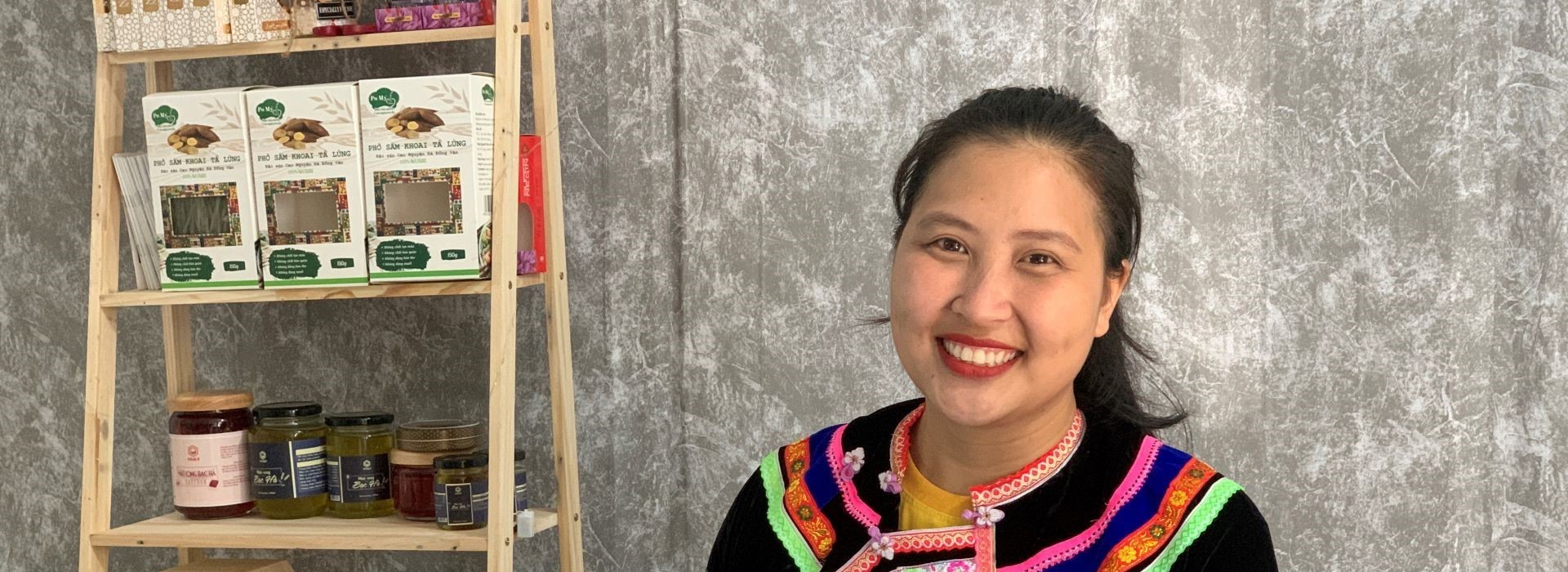In Vietnam, a female cooperative owner is growing the entrepreneurial spirit
June 27, 2022 | By Vicki Hyman
Luu Thi Hoa, 29, lives with her parents and young son in Ha Giang, Vietnam’s northernmost province, a place of steep forested hills and emerald valleys about six hours from the capital Hanoi, where her husband lives and works. She founded Po My, an agricultural cooperative that sells peas, leafy greens and a local honey that tastes of the mint blossoms that carpet the mountains in the winter.
“Right now, what I want most is to create more products from local resources to create sustainable livelihoods for my hometown people,” she says. “Especially people with difficult circumstances, so that they can take the initiative in making a living, and especially to enhance the image of the product to contribute to the changing face of the homeland.”
But as a young woman from an ethnic minority without much collateral, she found it hard to mobilize capital, both in terms of accessing credit and managing her own finances. To grow her business, she found support from CARE, the global humanitarian agency whose Ignite program helps build entrepreneurship and bridges the gap in finance, technology and networks for underserved micro and small business owners, especially women.
Women are outpacing men in entrepreneurial activity in Vietnam, according to the 2021 Mastercard Index of Women Entrepreneurs — one of only 10 economies where this is happening – yet there is a $1 billion gap in the capital demand of female-owned small businesses and what banks offer, according to CARE.
Hoa took a number of courses through Ignite, which is supported by the Mastercard Center for Inclusive Growth, learning the fundamentals of business administration and product processing and receiving intensive coaching on product branding and packaging, especially for the mint honey. She now employs 18 people.
When COVID-19 hit, decimating the tourism industry that she relied upon for sales, she was able to use her new skills to sell her products on e-commerce platforms and to use social media to shorten the distance with potential customers, even livestreaming, which, she says, helps her customers understand her products better, and she can better understand her customers.
“In the future, I hope to create many products that generate value and help people in my hometown be active in production,” Hoa says. “I would love to be an example for other ethnic minorities to bravely start a business from your local resources.”